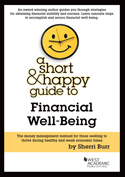by Sherri Burr
In a “Dear Abby” column appearing in local newspapers on September 10, 2013, the famed advice columnist received this query:
…I’m wondering if there is a basic principle you abide by in order to help guide you when giving advice. ~ Curious Reader
She responded:
I hadn’t really thought about it, but I suppose it’s something like this: Show up for work ready to put forth my best effort. Be honest enough to admit that not everyone agrees with me or that I’m sometimes wrong. Tell the truth, the whole truth and nothing but the truth. Don’t pull any punches, don’t preach and always try to be succinct.
Reading her response, it occurred to me this advice applies to the writing life.
First, writers need to work in a disciplined manner at a home office or designated area. Phil Jackson, a retired jockey who penned the memoir On a Fast Track, writes from 1:00 p.m. to 5:00 p.m. during the week in his home office. Western author Melody Groves, a retired school teacher, writes Monday through Friday from 8:00 a.m. to 12:00 p.m. When Groves taught, she wrote between 4:45 p.m. and 8:00 p.m. She views writing as a job to be taken seriously, as if paid hourly.
Others who have full-time jobs may write in the mornings before the rest of their home crew awakes, or in the evening after their family sleeps. As a university professor, Kathy Kitts wrote nonfiction from 9:00 p.m. to 11:00 p.m. and fiction from 11:00 p.m. to 2:00 a.m. Personally, I write in 90-minute blocks throughout the day. I read a New York Times article that praised the virtues of taking breaks after each 90-minute session.
Whenever you choose to write, show up, ready to put fingers to keyboard, pen to paper, or voice into a device of your choice.
Doing your best may vary from day to day. Sometimes, you arrive at your designated writing space with ideas flowing and ready to produce. Other times, your mental processes struggle. For those moments, consider playing Mozart, Vivaldi, or other music in the background or through your ear buds to stimulate your brain. In his book The Mozart Effect, Don Campbell extolled the ability of music to stimulate creativity. He subtitled his work “Tapping the power of music to heal the body, strengthen the mind, and unlock the creative spirit.”
Dear Abby’s next piece of advice admonishes to be honest enough to admit not everyone agrees with you or you’re sometimes wrong. This is important when seeking feedback from critique groups. Not everyone is going to consider that the words you put on paper proclaim you to be the next Shakespeare. It’s important for writers to be open to receiving criticism and admit editing is necessary.
When Dear Abby wrote, “Tell the truth, the whole truth and nothing but the truth,” she was quoting the oath administered to witnesses in legal proceedings.
This oath applies whether writers pen nonfiction or fiction. With nonfiction, because the reader expects the words to be true, the author should so deliver. Memoirists who shade the truth to make their stories more dramatic have been immensely criticized, and publishers have sometimes pulled their work from the market. With fiction there must be truth in the emotions of the characters, even if the words are products of an author’s imagination.
Years ago, I took a Dramatic Writing course at the University of New Mexico with famed professor Digby Wolfe who had written for Laugh In. An important exercise called “Truth or Fiction” required each student to write and stage a short play for class. Then the audience had to guess whether it was truth or fiction. Wolfe urged his students to produce both their nonfiction and fiction with emotional richness.
Dear Abby’s final point is: don’t pull punches, don’t preach, and always try to be succinct. For writers, the first maxim relates to not softening the emotional blows of your words. Let the characters go for broke, no matter how hard the story may be for the reader to consume. If told effectively, the reader will obtain the moral without needing to be preached its ethical underpinnings. Being succinct requires not wasting words. For example, Melody Groves is fond of eliminating the word “that” from work she critiques. She finds “that” often unnecessary and once the writer thinks about it, he or she agrees.
To summarize, writers must show up to produce their best work. Be honest, be succinct, and don’t pull punches or preach.
 Sherri Burr is the Regents’ Professor of Law at the University of New Mexico School of Law where she teaches Entertainment Law, Intellectual Property Law, and Art Law. A graduate of Mount Holyoke College, Princeton University, and the Yale Law School, she has authored or co-authored 20 books, including A Short and Happy Guide to Financial Well-Being (West Academic, 2014). Sherri is also a long-time member of SouthWest Writers and a regular contributor to the organization’s newsletter SouthWest Sage.
Sherri Burr is the Regents’ Professor of Law at the University of New Mexico School of Law where she teaches Entertainment Law, Intellectual Property Law, and Art Law. A graduate of Mount Holyoke College, Princeton University, and the Yale Law School, she has authored or co-authored 20 books, including A Short and Happy Guide to Financial Well-Being (West Academic, 2014). Sherri is also a long-time member of SouthWest Writers and a regular contributor to the organization’s newsletter SouthWest Sage.
This article was originally published in the December 2013 issue of SouthWest Sage and is reprinted here by permission of the author.


